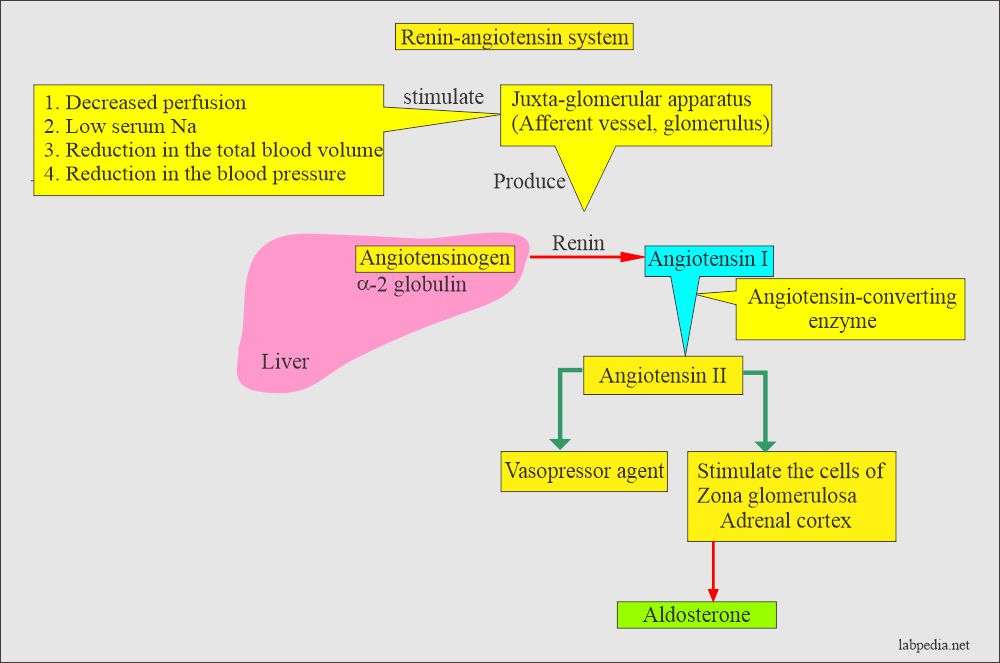Aldosterone, also known as cortisol, is an anti-stress hormone produced by the zonula glomerulosa of the pituitary gland. It's important for sodium management in the kidneys, adrenals, sweat glands, colon and salivary glands. The amount produced can increase when we are stressed, have a high fever, experience prolonged illness or injury. While it can also occur naturally, this tends to be much less common.
Many negative effects are associated with excessive production of Aldosterone. The effects are mostly negative for the kidneys, but can also be harmful for the central nervous system (CNS). Aldosterone has been linked to osteoporosis, cardiovascular disease and cancer. It has been shown to cause inflammation, depression, loss of memory and other cognitive impairments. It can lead to impaired immune function, which can result in more severe illnesses.
Cortisol can be helpful in some cases but can also cause side effects such as dizziness, nausea, depression and diarrhea. If you're experiencing symptoms that resemble those of an overactive cortisol, speak with your doctor about the possibility of a possible deficiency. It may not be possible for your doctor to determine if you do have too much of the hormone without performing more tests.
Cortisol is a hormone that can stimulate the immune system in several ways. It increases the number of white blood cells that travel to the skin's surface and help fight infections. Cortisol can help prevent inflammation in the joints by decreasing the inflammation-causing enzymes in the body. It also helps to remove foreign substances from the body through its action on the digestive tract and in the bowels.
Aldosterone levels can also affect blood pressure. High levels of Aldosterone can cause a condition called hyperadrenocorticism, which can cause abnormal elevated blood pressure. Because Aldosterone is also a stress hormone, it can cause increased heart rate and blood pressure. Other adverse effects of high levels of Aldosterone can include increased cholesterol and triglyceride levels. This can increase the risk of a heart attack and stroke, which can lead to cardiovascular disease.

Aldosterone may also cause abnormal bleeding in some people
A build up of Aldosterone in the arteries causes the vessels to relax and bleed. This can lead to severe discomfort in the ankles and feet. It can also cause a condition called spider veins and can lead to inflammation of the anal area.
Studies indicate that Aldosterone deficiency is more common in middle-aged women than in men, although it may be more common in people with diabetes and African Americans. There is no known cause for this difference in male and female patients. This deficiency can affect both adults and children.
If you've been diagnosed with excessive Aldosterone in your system, talk to your doctor about the possible causes of the excess production. To determine your Aldosterone level, your doctor will have to use a special test known as a blood test. In this test, he will collect a small amount of blood from you under a needle. He will then look at your results and will be able to determine your Aldosterone level. It's important to note that this test is only an indicator of what may be wrong with your health and not a diagnosis.
If you already take certain medications or are taking certain medications, such as birth control pills or antibiotics, your doctor may want to ask about them. Certain medications, such as anticoagulants, can interfere with Aldosterone production. Also, certain drugs may interfere with the liver's ability to produce enough of this hormone, such as antibiotics or antihistamines.
If you're suffering from high levels of Aldosterone in your system, talk to your doctor. Your doctor may be able to diagnose the problem with a blood test. You may be advised to take additional supplements to balance out the amount of Aldosterone in your system or to treat the symptoms. If the problem is caused by a deficiency of Aldosterone, your doctor may prescribe oral supplements to give your body the necessary amount of the hormone.
A lack of Aldosterone deficiency can cause many problems throughout your body. If left untreated, it can lead to hypertension, anemia, heart disease and diabetes.